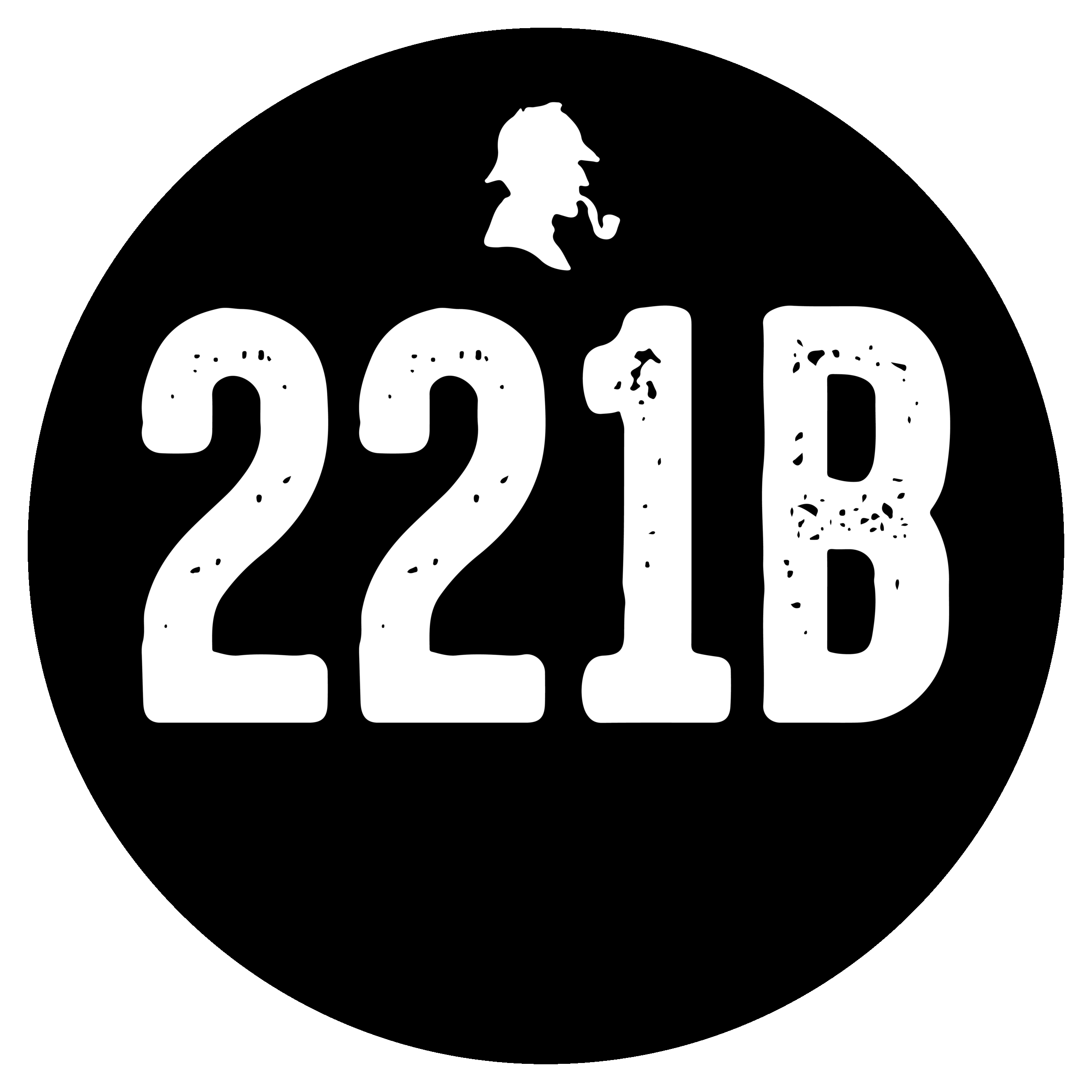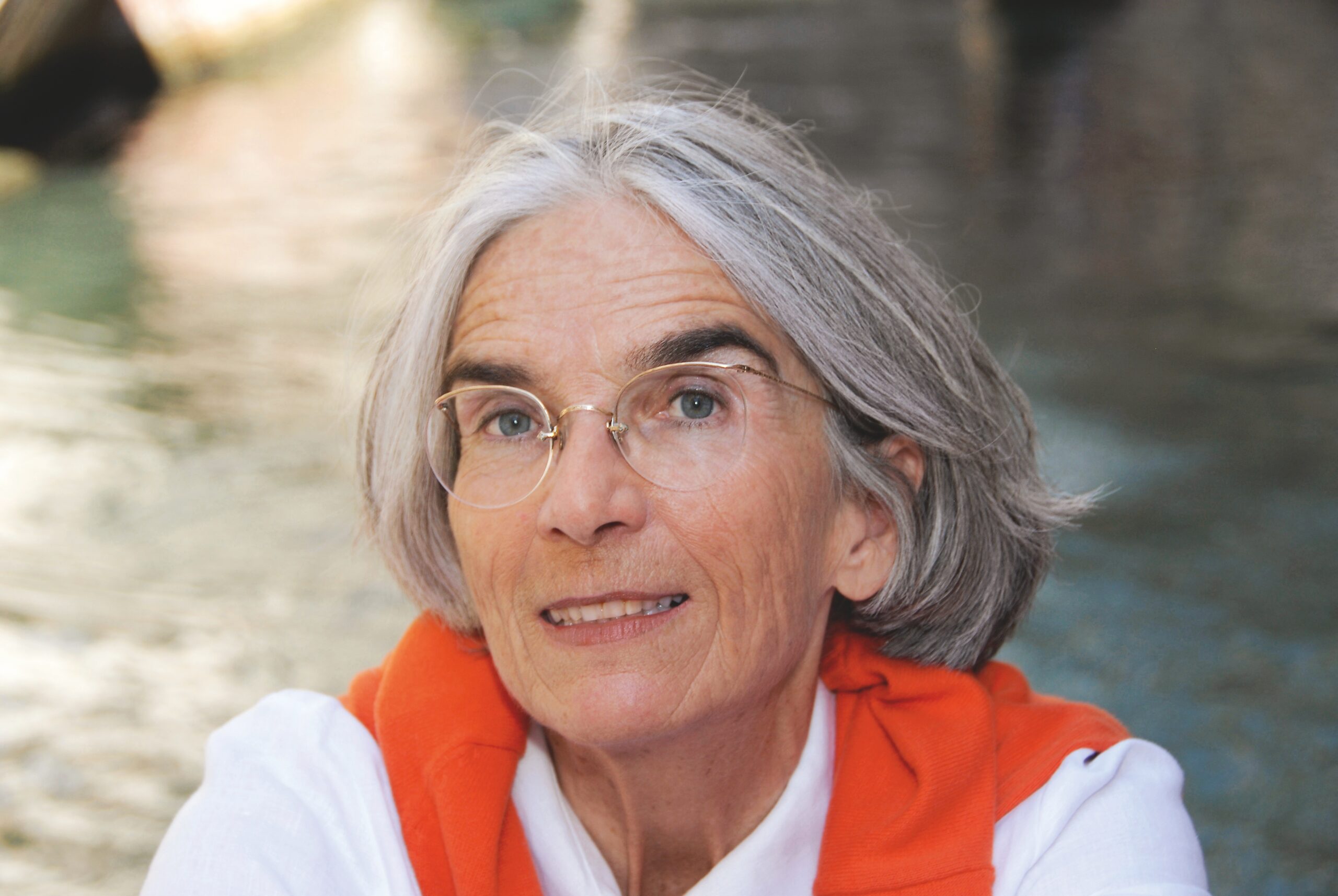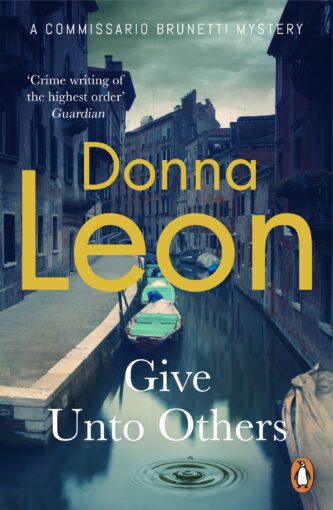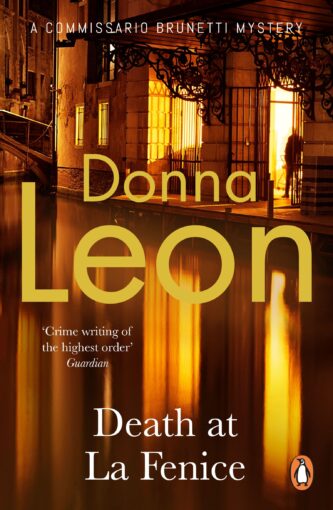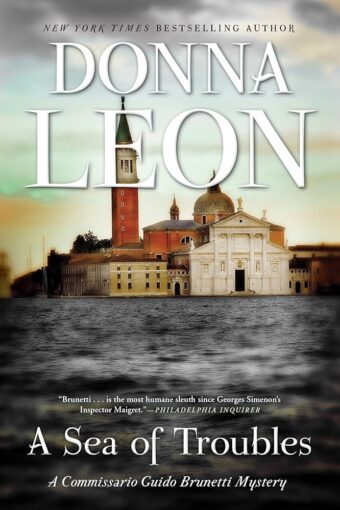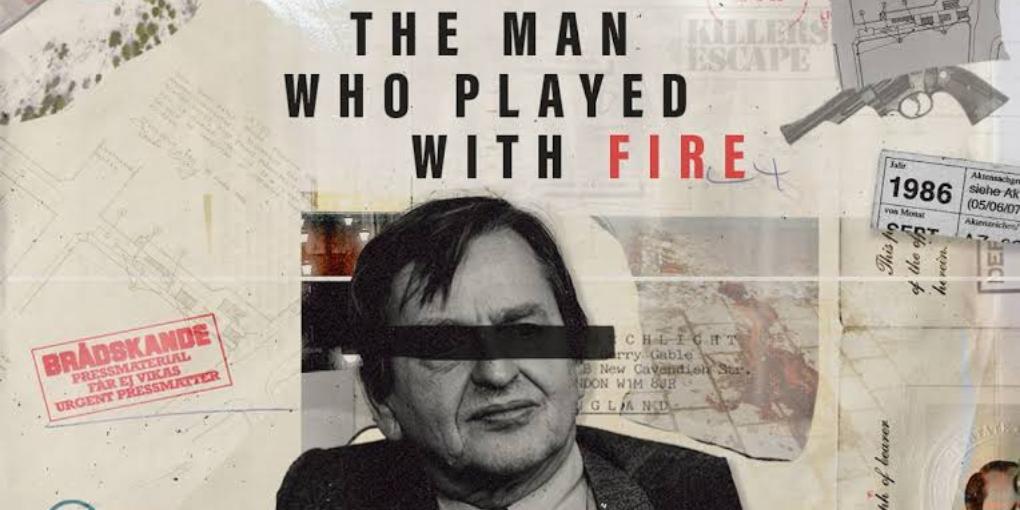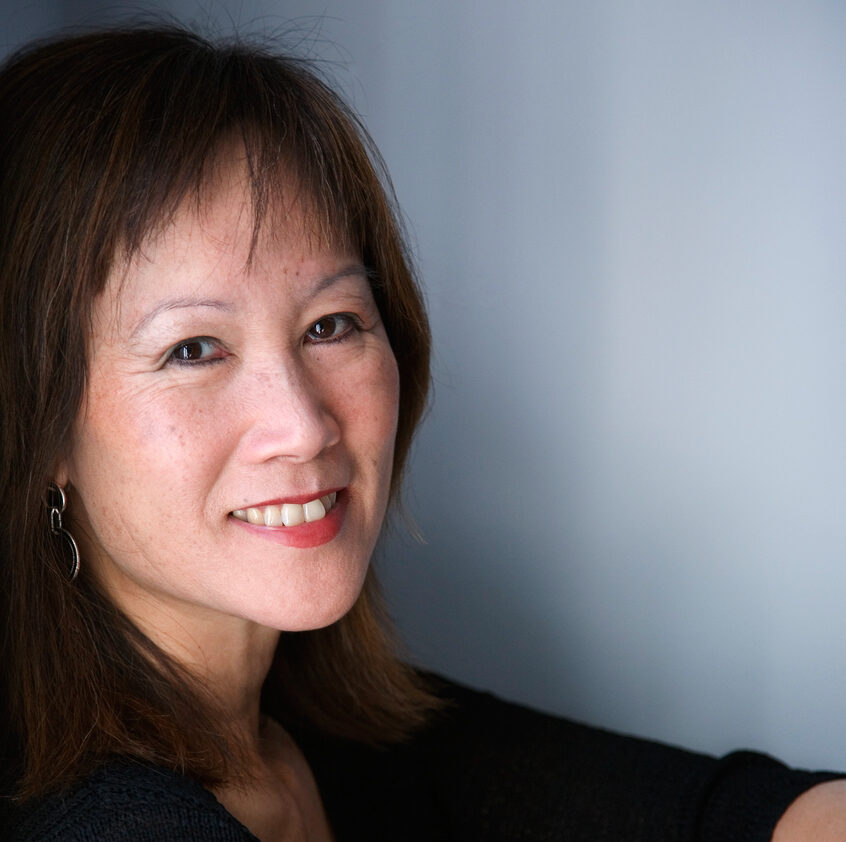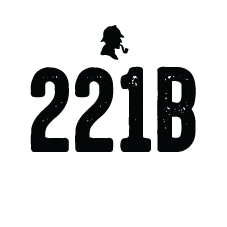Commissario Guido Brunetti… The antithesis of detective clichés. According to the author, he is an extremely proper, intelligent, well-educated man. His tie is carefully tied. His hair is shorter than the contemporary fashion requires. His clothes indicate that he is a true Italian. The rhythm of his speech shows that he is Venetian. The eyes radiate intense police work. And Donna Leon… Leon, originally an American writer and academic, transported readers to a mystery at the center of the opera world in the first novel of the series (Death at La Fenice), published in ’92. The Venetian Commissario Brunetti has since become one of the cult characters of crime fiction. Donna Leon, Brunetti, and their Venice continue to fascinate crime fiction readers for 30 years. We had the opportunity to have an exclusive interview with Donna Leon, one of the most important writers of modern detective fiction. We had a great interview where we talked about many topics, from literature to opera and from Brunetti to crime fiction writing.
Ms. Leon, I know that you were originally an academic, teaching English literature at various universities and colleges around the world. Can you tell us about this aspect of your career and all the different countries you’ve been to?
Donna Leon: Of course, let me think. I don’t exactly remember when and which country I went to. I think Iran was the first one. Of course, I define myself as an academic, I am an academic. But the period I went to Iran was in the 70s. The only job I could find was to give basic English training to army helicopter pilots. After doing that for about three months, I realized that I didn’t want to spend the rest of my time there doing that again. So I got myself transferred to the testing department through a friend of mine and spent the remaining four years playing tennis with my tennis partner, who was 10, 15 years younger than me. He had one of these useless jobs. He would come to the office in the morning. He would stand at the door of my office for a while and then leave. And I would get up from my desk, get some papers, go to my boss, and say something like, “I will take these papers to the headquarters.” And then we would go downstairs, put on tennis whites, and play tennis until three o’clock. It was great.
You are actually an American, born and raised in New Jersey. But over time, you developed a deep relationship with Venice. When did this start exactly? What does Venice mean to you?
Donna Leon: I first went to Venice as a tourist in the late 60s. I was surprised by what a beautiful city it was, like many people. I went back the following year, and by chance, I met a young Venetian woman and her boyfriend. I spent most of my time chatting with them, visiting them in their workshops. We spoke Italian because they always spoke Italian to each other. And with their permission, I would sit there and listen and ask questions. This way, I learned Italian from Franco and Roberta. After that, I visited them constantly. I can say that we became friends in a way. Whenever I went to Venice, I would stay with Roberta and her family. We were as close as a real family. It has been 50 years, and she is still my closest friend. Every time I go to Venice, which is at least once a month, I definitely visit them. Somehow, I was accepted into the family. I became part of the group, I met their friends, their colleagues, and so I was quickly integrated into the system. I also wanted to learn Italian very much, so I learned very quickly. They were also very good teachers. Of course, it wasn’t really their job, but when you sit down and talk about something interesting, you pick up the words immediately.
And then you decided to write a crime fiction set in Venice, right in the heart of the opera world. The first novel of the Brunetti series, Death at La Fenice, was published in ’92. Can you tell us a little bit about this process?
Donna Leon: While I was doing my graduate studies, I was striving to reach an advanced level in English literature. I was working as a lecturer at the same time. So I was reading serious books, talking about them, taking classes, and giving lectures. So when I went home in the evening, I didn’t want to see any more Henry James or Jane Austen. That’s why I would read mystery novels that I got from the library. I must have read hundreds of them because once you learn the structure, you can finish a novel in one night. It was a very relaxing activity for me. I didn’t have a television. So I read crime fiction all the time. In time, I learned the plot, the template, and the structure.
I was crazy about opera. I was at the rehearsals of an opera piece in the 60s. The conductor was my friend. He, I, and his wife were in the dressing room, and somehow we started talking badly about another conductor. Things escalated, and all of a sudden, they started talking about killing him, and I thought, wow, what a great idea for a crime novel. The conductor is found dead in the dressing room, and the door is locked. I had read too many locked-room crime novels. Thank you, Agatha Christie. So I asked myself, how can I do this? How can I write a novel? It’s like eating a very good pasta and trying to guess what’s in it. What spices are used, how do you make the sauce, how long do you cook it, what kind of tomatoes to use…
So I wrote a detective novel, and it sat in a drawer for a year and a half because writing it wasn’t something I really wanted to do, and I wasn’t interested in publishing it. I just wanted to see if I could do it. A friend of mine was very insistent that I send it to a contest in Japan. So I sent it, and my novel won. Immediately after that, I signed a two-book deal with an American publisher, thus, I made it an obligation for myself to write the second novel. I was enjoying it so much. That’s why when my publisher offered me two more books, I accepted. So it all started almost as a result of a joke. It has been an incredible adventure for me, and I still enjoy writing immensely. It’s like playing chess with yourself. You move pieces on a board. You must be very careful how you get to the other side. And you can set up obstacles because you are in command of both the white and black pieces.
Commissario Guido Brunetti… A character loved by millions of readers around the world. What do you think lies behind this appeal?
Donna Leon: I would definitely say his intelligence. And for female readers, it’s like this: They are attracted to him as a human being because Brunetti loves women. He loves them as a human being can love another human being. Throughout the books, female readers realize that this love is self-sufficient. So when they are alone with him or in a situation, the way Brunetti shows his love will never change. They are safe.
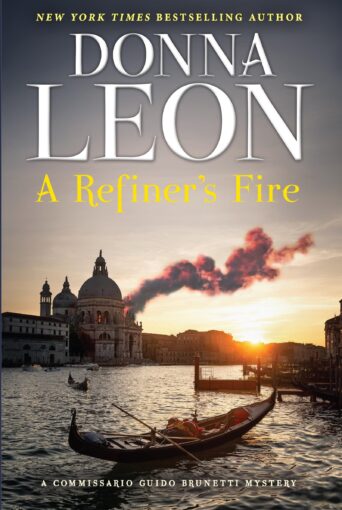
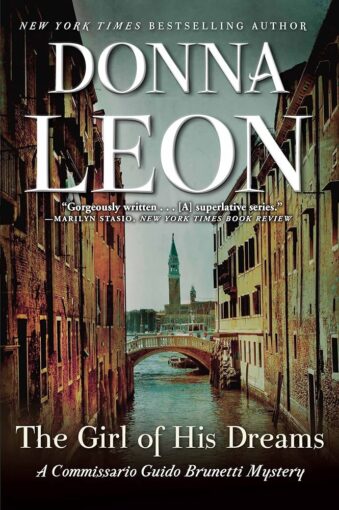
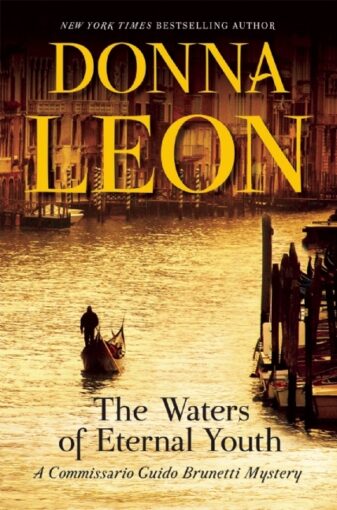
Brunetti is actually outside the stereotype of the modern detective. He’s not an unhappy man. He’s not an alcoholic, not a loser. Brunetti is an intellectual. He uses quotes from Cicero. He is interested in music, literature, and art. Was there anyone who inspired you to create this character? Or is it completely a product of your creativity?
I can say that he is a combination of my Italian friends. One is a lawyer, one is a doctor… Men I’ve known for a long time. They have some characteristics: They love women as human beings. They are intelligent, educated. You can sit together and discuss a work of art, an opera, or a novel for hours. So it’s a pleasure to be with them. They don’t project an inner sense of superiority to the other party. Most men do that without realizing it.
I know you are particularly interested in baroque opera. Your novels always start with a quote from an opera as well. Can you tell us a little about this relationship?
Donna Leon: I became interested in opera and baroque music in the 1960s. I was living in New York at the time, so I had access to the Met or the New York City Opera. Once, I accidentally went to a concert version of an opera. There was no stage, no costumes. It was playing at Carnegie Hall. It must have been the early ’70s. Alcina… It’s one of my favorite Handel operas. I listened to something I’d never heard before. I had heard Messiah many times before, but here, there was a baroque orchestra and baroque soloists. I was totally mesmerized. I switched directions there. This was the music I wanted to listen to. I’ve been an opera fan ever since. Not only do I watch and listen, but I also support them; I travel with them to their concerts. It’s a real passion for me.
I would like to talk a little bit about the Venetian setting. One of the key elements of detective fiction is the setting. The world in which the detective lives, works, and breathes. How does the Venetian space affect Brunetti? What does Venice mean to him?
Donna Leon: Venetians love their hometown. I have never come across this in the citizens of any other country. Maybe Istanbulites who have read and know about Constantinople and Byzantium feel the same way about their hometown. Because you pass by a building, who knows how many centuries old it is. I once asked a Venetian friend of mine how long his family had been in Venice. He said about a thousand years. It’s incredible because they actually have documents. They have a huge archive, so people can trace their family lineage. Venetians live in the present, but they always hear the steps of their ancient history behind them. The splendor of the 15th century, of the 16th century… We are talking about Venice, which is now a sort of first-class tourist city of 50,000 inhabitants. Once they ruled the seas, they ruled most of Europe, and they traded with the whole world. Now it’s a small city of 50,000 people living only for tourism. It’s heartbreaking to see how far they’ve come from their glorious years. That’s why Brunetti always has a touch of melancholy.
You also focus on the clash between North and South in your novels.
Donna Leon: Yes, I think Italy started to come together in the mid-1800s. It was actually made up of small principalities and kingdoms. After Garibaldi, they united as one country with one language, one state, and one constitution. But the people living in those small places continued to speak their own language. Venetians still speak Venetian. They speak Italian, of course, but there are still a lot of people who don’t speak Italian, especially the older ones. They only speak Venetian. The people of each region are proud, not of being Italian, but of being, for example, Roman, Neapolitan, Sicilian, or Venetian. Their loyalty lies more in their city than in their country.
The setting is ready, the character is ready. We just need a plot. Your novel Blood from a Stone focuses on diamonds, blood diamonds mined in African war zones. Through a Glass, Darkly is a novel about environmental crime and glass workers. Acqua Alta takes us into the world of forgery art. Transient Desires focuses on the theme of human trafficking. In Friends in High Places, Brunetti gets caught in a web of corruption and drugs. How do you come up with these ideas?
Donna Leon: I follow the newspapers and talk to people. Let me explain the process to you. I never know when I’m going to sit down and start a new book. What will the book be about? I have no idea what it will be about. I don’t make an outline. I don’t know what kind of outline I’m going to make, but I catch something strange. A strange situation that needs an explanation. I can give an example of the process of the novel Transient Desires, where African women are taken to Europe. I read in a newspaper about the case of two young men who came to a hospital emergency room at two o’clock in the morning. They brought two wounded young women with them. I think one of them had a broken arm, and the other one had been beaten up a great deal. While the girls were registering at the emergency room, the boys suddenly disappeared. Around 2 or 3 am. The next morning, they found them easily. They were wandering around the lagoon. And the girls, by the way, I think they were Canadians, were with them. Nobody was smuggling anything. Nobody was doing anything illegal. But it was eating me up inside. Why didn’t they stay at the hospital? Why did they leave the girls and leave at two in the morning? What had happened? What could be the reason why these kids didn’t want to be seen by the police? The girls later testified that it was all an accident. I start from here and see where it goes. I build on the reason why those boys didn’t want to be there. I follow a cause-and-effect relationship. That’s what usually happens: someone tells a story, or I hear something somewhere, and I read it. Once I was at the opera in Zurich, and I saw a young woman who had obviously had a lot of facelift operations. She had deep eyes and perfect skin. She could have been any age between 30 and 70. She was not young, but she had a young face. I saw her for two seconds and tried to understand why a young woman would need dozens of facial plastic surgeries. That gave me an idea for my book. I would also say gossip. People are always willing to talk, to tell. And I love to listen to them.
I would like to talk a bit about the other characters in the novels. Brunetti’s assistant Vianello is one of the fantastic characters. He has great insights that help Brunetti solve cases. And then we have Signorina Elettra. Another assistant to Brunetti. How did this character come about, and what role does she play in your stories?
Donna Leon: Yes, Brunetti needed assistants. Vianello is someone who is much smarter than he seems. Much smarter, but not ambitious. He’s happy with his life, satisfied with his job. He supports Brunetti very well. As for Elettra, she’s a tool to hide my incompetence with computers. Computers don’t interest me at all. I know, I can think of many people who spend all day playing with their computers. I use them too, of course, I read the news, write emails, and work on my novels, but that’s it. If you need the Pope’s private number, Signorina will find it in 10 minutes.
And then there’s the Brunetti family. Mom, Dad, Grandma, and two children. They love each other. Brunetti’s wife is a professor; they talk art, they talk literature… It’s a happy family. It’s not something we’re really used to in crime fiction.
Donna Leon: I must admit that I’m doing one of the things a writer shouldn’t do. In many ways, it resembles my family. I confess, I say it out loud, I come from a happy family. If you look at the world we live in, it’s an unusual thing to come from a happy family. But I suppose many families somehow manage to find happiness. In the Brunetti family, both parents are intelligent and sensitive. They don’t preach to their children; they try to set an example with their own behavior. Besides, why shouldn’t we read about a happy family, especially in crime fiction?
You write a novel every year. You have written 31 novels in 30 years. Do you still enjoy writing and writing Brunetti adventures? How do you sustain the success of your novels and Brunetti?
Donna Leon: I have a method, of course it won’t be a secret when I tell you, but it’s like this: After finishing one of my novels, I went back and checked how many pages the first draft was. Then I checked the number of pages in the first draft of the previous book. It was around 365. Well, where else have I heard that number? Yes, there are this many days in a year. Taking care of the orchestra actually takes up a lot of my time. But I have to write, of course. I write one page a day. I mean, there are weeks when I don’t write anything, but then there are times when I write 10 pages a day. I think the secret is not to be too strict about it.
Brunetti was one of the detectives I featured in my “What Detectives Eat and Drink” column. Gastronomy, Italian cuisine, is a strong element of your novels. Brunetti always goes home for dinner; he likes to spend time with his wife Paula, or his daughter and son, and in these scenes, they chat and eat together, and we witness the detective’s family dynamics more closely. How do you use gastronomy to strengthen and add dimension to your stories and characters?
Donna Leon: Brunetti is an Italian, after all. You know, I don’t get this question a lot, but the British, Germans, and Scandinavians wonder how Paula can cook two meals a day. The answer is simple. She is an academic at an Italian university. She probably teaches three hours a week. I really have friends like that. I have never heard this question from a Spaniard, a Portuguese, or a French person. Probably a Turk would not wonder about it either. Because having lunch is normal. Lunch is not a quick sandwich and a Coke.
I think you also published a recipe book with a friend of yours, right?
Donna Leon: Yes, with my friend Roberta, the one I told you about. I think about 20 years ago, my publisher in Zurich called me and expressed requests for a recipe book, especially from German readers. I said I couldn’t write a recipe book. I went to them with another suggestion. I could write articles on how Italians approach gastronomy. And my friend would write the recipes. They agreed. I wrote six or seven articles about Italians and about strange ideas about food. Roberta made the recipes she had cooked all her life, the recipes she had learned from her mother and grandmother. We would meet every week and try to find the best recipe for a particular dish.
Your latest novel, your 31st novel, Give Unto Others (2022), is set in the pandemic world. It opens with Brunetti doing a favor for someone he has known for a long time. He then finds himself in a web of fraud and deception. Can you tell us a bit about your latest novel?
Donna Leon: Yes, a friend of mine told me about a job he did. He was working as an accountant, and he encountered things in the company that he didn’t believe were right, and he didn’t want to work there anymore. This was a charity. There was so much dirty work going on that the accountant didn’t want to work there anymore. What this organization was, of course, was not supposed to be known. But I started thinking about it. Who would do this and why? How would they do it? And I spent a lot of time talking to lawyers and reading government rules and regulations. I don’t think I have ever done that kind of research before, because I needed to have the right information about how certain things could be allowed and how certain things could be done. You can’t believe the things people will do just for money.
Your novels have been adapted into movies. What do you think about the movie versions of your novels?
Donna Leon: I was very early in my career, and thankfully, at that time, I made it clear that I was not interested in adaptation in any way. I don’t go to the movies. I don’t own a TV. I don’t have an eye to evaluate their work. So I said, you do your own thing, and I’ll do my own thing. I think I saw two movies. I have no idea which novels they were both adapted from.
One of the functions of a crime novel is to mirror society and offer criticism about the system. Do you see yourself as part of the tradition that uses the depiction of crime as a tool of social criticism?
Donna Leon: No, I think this is not my job.
In your novels, you focus on the organized state of crime, the functioning of capitalism, and the corruption in all areas of life, rather than on who commits the murder/crimes. You do this with a series that started in the 90s. From the 90s to today, the world continues to be monopolar. Capitalism has arrived at the end of the neoliberal discourse, things have become harder, and corruption has increased. In recent years, we have seen more and more novels, TV series, and movies that deal with this current and factual situation. How do you ground this in your works, in the crime novel, and perhaps in literature and cinema in general?
Donna Leon: Yes, capitalism. To me, it is another name for greed. It represents the insatiable in us. We want things we don’t need. We are in a system that pushes people to own objects. In the subtext, they present this: the more things you have, the happier you will be. What we need to do is dedicate our lives to acquiring wealth. Afterwards, we will be happy, we will feel important. But no, it doesn’t work that way. I don’t think novels are the right place to preach this particular sermon. But at the same time, it’s very insidious and very effective to portray the villain as someone who is clearly greedy. That way, the reader can see what greed can cause. But before attacking capitalism completely, I would like to know what comes next. Many ideologies have stood against capitalism. Communism was the most effective and important one. I was a teacher in China for a year. That time convinced me that this system doesn’t work. They tried very hard to make it work, but it didn’t. I have always been skeptical of capitalism, but I am equally skeptical of everything that opposes it.
You are a woman of letters. What is a good crime novel in your opinion?
Donna Leon: A good crime novel should create a mystery, it should have an element of surprise. Let me give you a strange example of what I believe is a great crime novel. Ruth Rendell passed away about 10 years ago. She was one of the greatest British crime writers. A Judgement in Stone was published in the ’70s, and the first sentence was, “Eunice Parchman killed the Coverdale family because she could neither read nor write.” It’s an incredible sentence. It gives you the name of the killer, it tells you who the victims are, and it explains the motive of the killer. You are just in the first sentence of the novel. You have 350 pages to read. You know what is going to happen, and you follow the process. It is a novel I have read many times and lectured on. I recommend it. Ruth and I had known each other for many years. She had an incredible sense of humor.
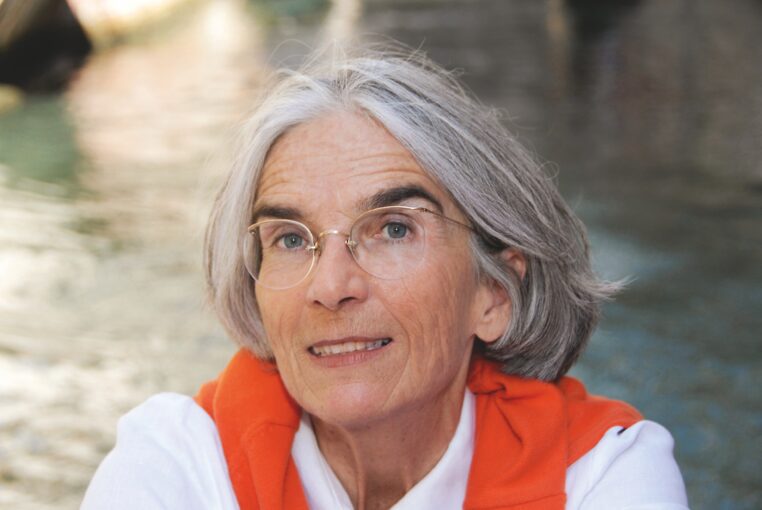
Where do you think crime fiction is heading?
Donna Leon: I especially follow the reviews in the Times Literary Supplement and The New Yorker. It’s a fact that female detectives continue to increase. I can say that the dose of violence has also increased. Killing a single person is not enough anymore. You have to blow up a building. I don’t know where it will go from here.
What are your plans for Brunetti?
Donna Leon: As long as I continue to find interesting ideas, as long as I continue to enjoy it, I will continue to write Brunetti novels.
Do you have a favorite novel in the series?
Donna Leon: I don’t think I have a single favorite, but there are novels that I really love. Falling in Love is one of them, for example. It was about a strange opera fan. I had a lot of pleasure writing that novel because I was in opera circles a lot. This is not a measure of the quality of the novel, of course; I just like that novel because I can write about opera.
Do you have any advice for young writers?
Donna Leon: Actually, yes. I’m not talking about crime fiction in particular; a young candidate who wants to write fiction in any genre should read a lot and read constantly. What you read is very important. There are weights in boxing. You cannot have an opponent from a higher or a lower weight class. You have to compete in your own weight class. If someone wants to write a good novel, they should definitely read from a higher weight class. Those who want to write good crime fiction can start with Charles Dickens. Bleak House is a murder mystery. If you want to establish the plot, Agatha Christie. But afterwards, definitely Chandler, Hammett, Ross McDonald… Definitely John le Carré. These are writers with a very good pen. The fiction already sticks in your brain after you read it. The introduction of the mystery, the solving of the mystery, the suspects, the detectives… On the other hand, you learn how to write well. Instead of writing that a man has a wound and a gun in his hand to show that he is dangerous, you have to make the reader uncomfortable with the character in some way. I didn’t practice to do that. I had read so many crime fiction books that I knew the stereotypes. If you want to break the stereotypes, first you have to know them very well. To break a stereotype is also to accept its existence. But in any case, you need to know the patterns. If you know the pattern that the stranger who walks through the door is always the bad guy, you can reverse it. You play with them until you find something that works. In the case of Brunetti, I would say something like this. I am aware that I will spend many years with this character, this man. I think I wanted to create a character that I could respect subconsciously. I have been with him for 32 years. I couldn’t stand a man who doesn’t take care of his clothes, doesn’t shave, doesn’t care about food culture, doesn’t read, and watches football matches on TV every night for so many years.
